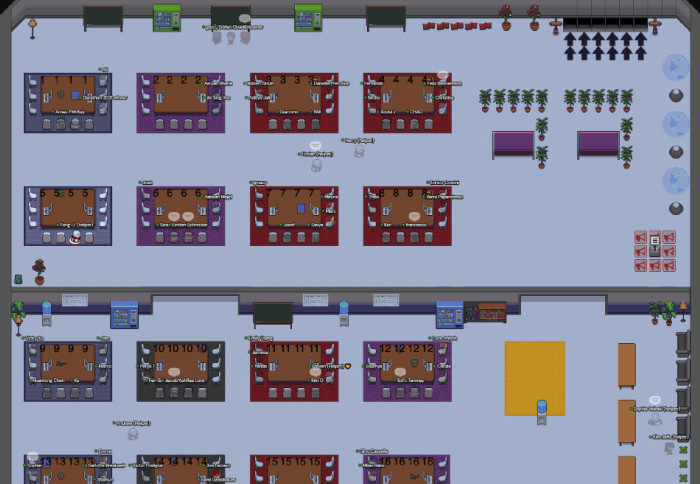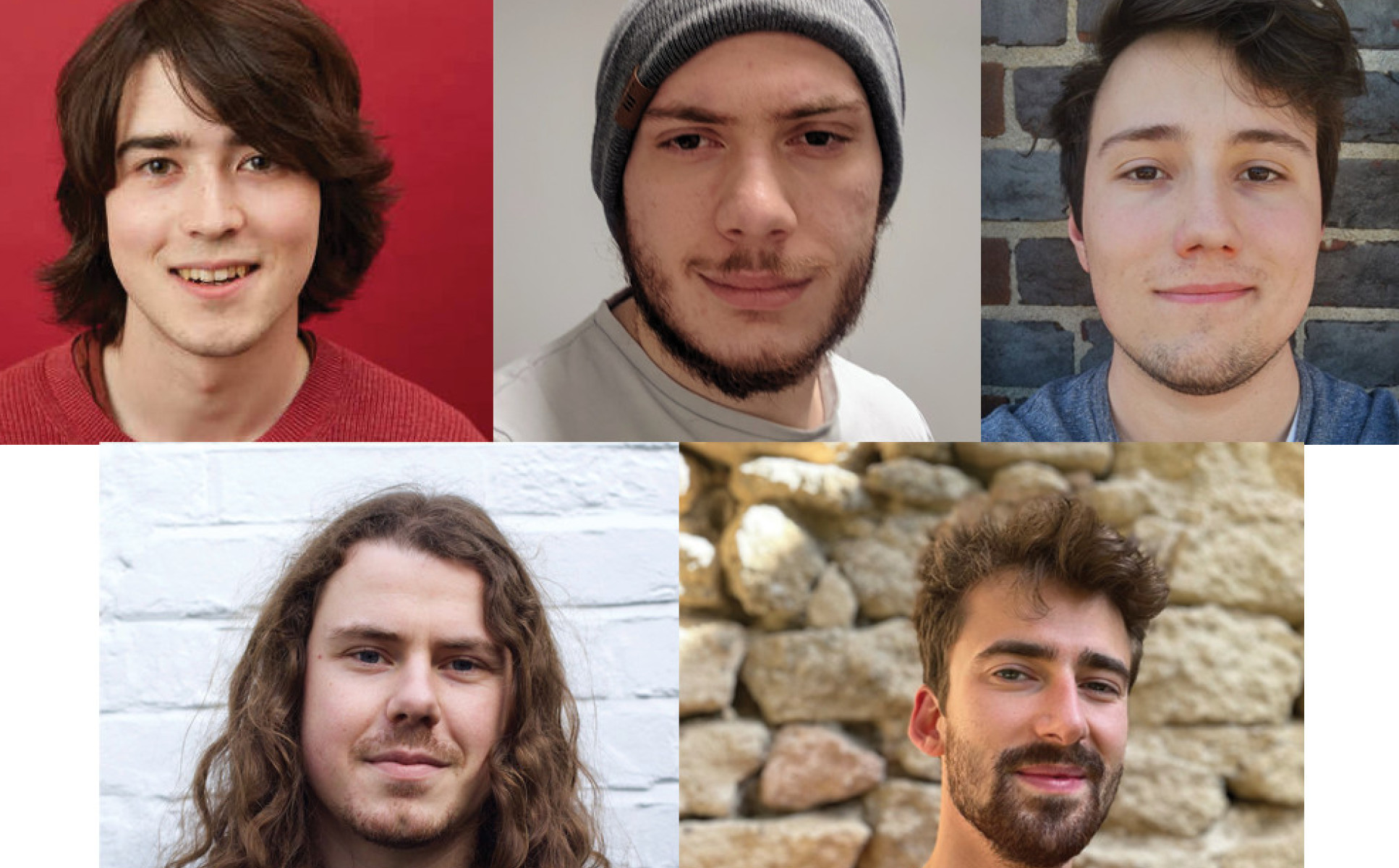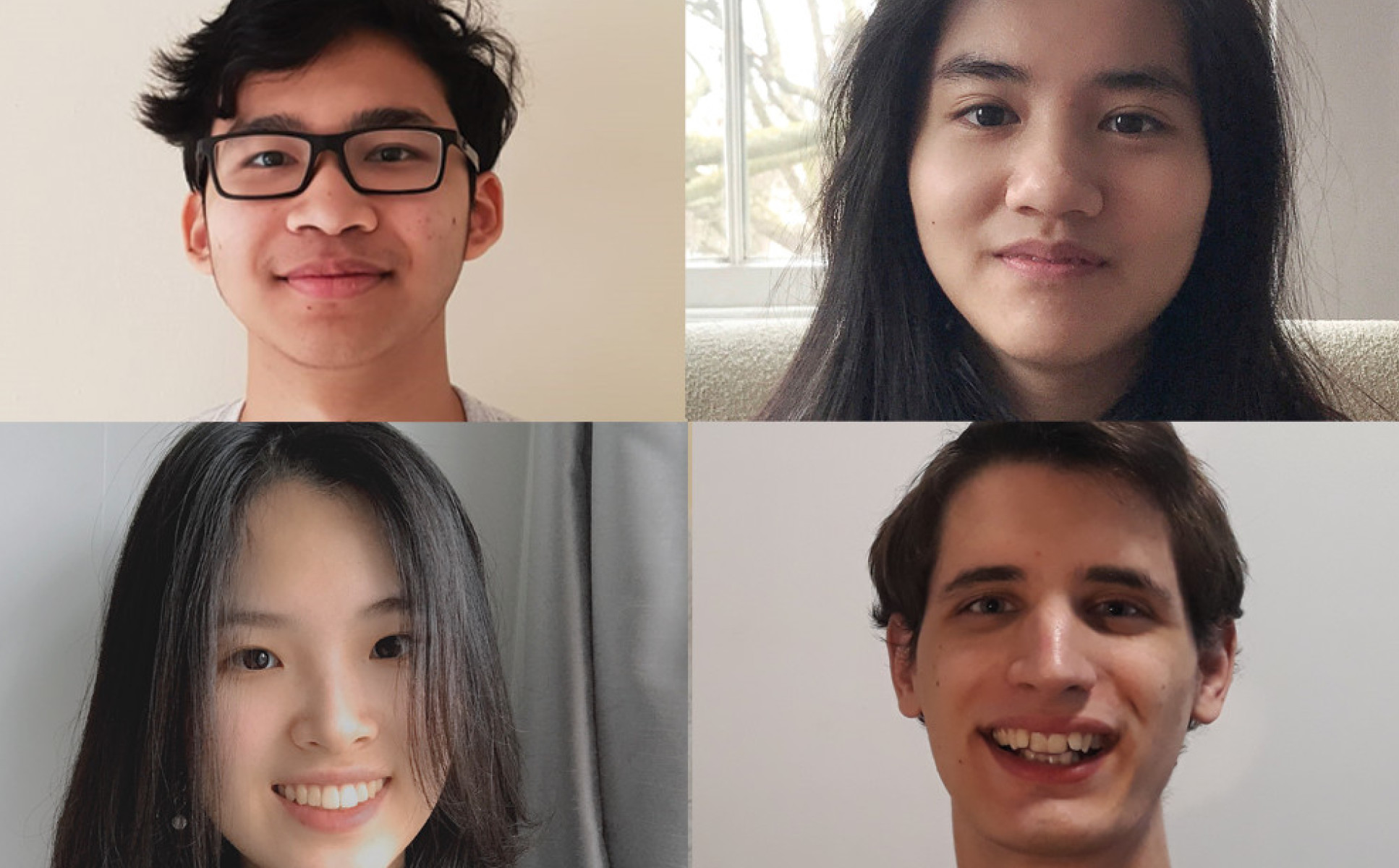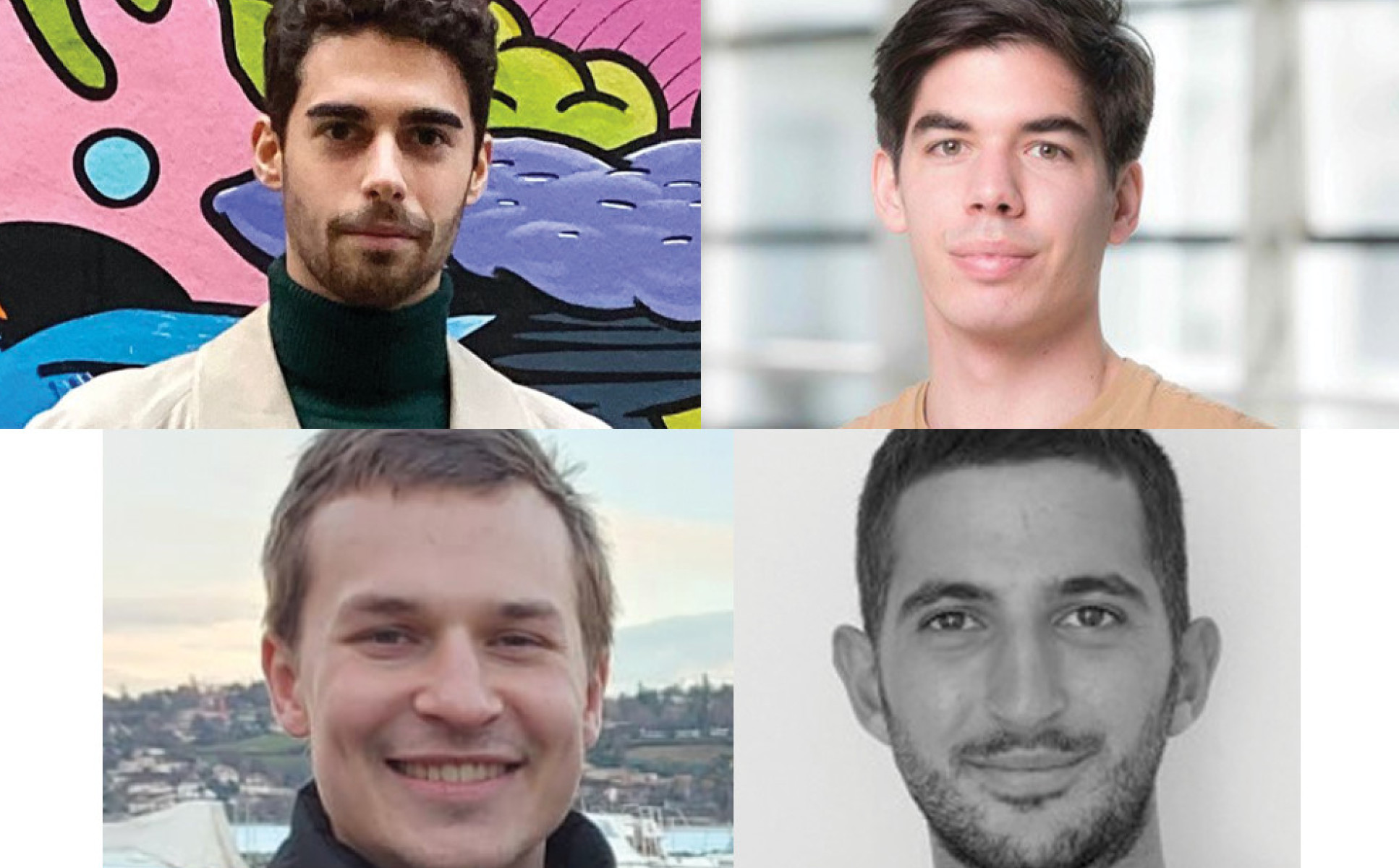DigiFAB and FoNS Data Science Datathon Competition: winners announced!

The virtual room where our Datathon participants worked on their ideas
75 Imperial students and staff participated in the recent DigiFAB FoNS Datathon challenge focused on predicting molecular packing in the solid-state.
On 24 March, the first FoNS-DigiFAB Datathon brought 75 Imperial students and staff together online in our specially designed gather.town virtual room to solve a challenge on predicting molecular packing in the solid-state.
Fifteen multidisciplinary teams of undergraduate and postgraduate students and early career researchers interested in the area of data science participated.
The challenge
It typically takes around ten years, and upwards of $10-100 million, to discover a new material. Researchers and companies worldwide are using computational approaches to cut down the time and cost.
Predicting molecular packing in the solid-state to enable molecular material discovery is a challenge of great scientific importance. Current approaches are computationally expensive, and digital chemistry based solutions (solving chemistry questions using digital technologies) offer a chance to improve the process. The Datathon Challenge was to predict solid-state properties, such as density, crystal symmetry and atom contact distances using the data provided.
The teams
We were delighted to see teams from the Departments of Chemistry, Life Sciences, Mathematics, Physics, Bioengineering, Computing and Materials sharing their expertise to find creative solutions to a pressing and significant scientific problem. Participants ranged from undergraduates through masters to doctoral students and research associates. Many said that it was the first time they’d participated in a Datathon and there was a genuine buzz on the day!
The event
Our teams were provided with detailed information about the Datathon challenge on the day and given five hours to tackle it. Our Scientific Committee was available to help throughout, and teams submitted their preliminary outputs by midday so that everyone could share how they were getting on.
Our keynote speaker, Dr Edward O. Pyzer-Knapp (Research Global Lead AI Enriched Modelling and Simulation at IBM) also gave an inspiring and informative talk entitled ‘Accelerating Materials Discovery with AI, Hybrid Cloud and Robotics’.
Choosing the winners
The teams’ predictions were evaluated using quantitative assessment. The assessment was carefully and comprehensively designed by the Datathon Scientific Committee, comprising: Data Science theme and DigiFAB leads Professor Guy Nason (Maths), Professor Sophia Yaliraki (Chemistry) and Dr Kim Jelfs (Reader, Chemistry). The Committee also included Dr Andrew Tarzia (Research Associate, Chemistry), and Chemistry Research Postgraduates Steven Bennett, Harry Hagan and Florian Song who worked tirelessly before and during the Datathon to make the whole event possible.
The top six teams had the opportunity to give a brief talk about their approach and their observations, and the Committee and keynote speaker used these presentations to help them decide on the winning teams.
Kim, Sophia and Guy were really pleased to see so many students and staff members keen to participate, and were impressed with the quality of the work, saying: "Thank you to all those who participated in the Datathon. It's brilliant to see so many of our future leaders in digital science working collaboratively to solve this digital chemistry challenge. We look forward to more opportunities to grow a thriving data science and digital chemistry community at Imperial and provide a platform for students and early career researchers to learn and shine!"
Participants were also keen to share their reflections on the event, saying: “It's an amazing experience”; “it was a lot of fun”; “I can't wait until the next one”; “I learned a lot”; “thank you to you and all of the team for organising such a great event!”; “It ran really smoothly and we had tons of fun, so thank you for doing such great work!”.
Congratulations to the winning teams - it was a close competition!
Winner for best solution
Christopher Bradley, Gino Cassella, Milan Rakic, Peru d'Ornellas, Thomas Hodson, all PhD students from the Department of Physics, awarded £200 each

Images clockwise from top left: Christopher Bradley, Gino Cassella, Milan Rakic, Peru d'Ornellas, Thomas Hodson
Runners-up
Marvin Alberts, Balazs Striker, Katie Zeng, Moe Thu Kha (Melvin), Yixuan Wang all Undergraduates from the Department of Chemistry, awarded £100 each

Images clockwise from top left: Moe Thu Kha (Melvin), Katie Zeng, Yixuan Wang, Balazs Striker
Third place
Enrico Crovini (PhD student), Francesco Sanna Passino (Research associate), Karl Hallgren (PhD student), Theodoulos Rodosthenous (PhD student), Yanni Papandreou (PhD student), all from the Department of Mathematics, awarded £50 each

Images clockwise from top left: Enrico Crovini, Francesco Sanna Passino, Karl Hallgren, Yanni Papandreou
Find out more about data science across FoNS and DigiFAB
The Data Science theme provides a networking hub, training opportunities and events for researchers across FoNS interested in data science.
The Institute for Digital Molecular Design and Fabrication (DigiFAB) is dedicated to digital molecular design and fabrication. Subscribe to the DigiFAB mailing list to hear about future events, Hackathons and Datathons. If you have any questions or comments about this Datathon, please email us.
Article text (excluding photos or graphics) © Imperial College London.
Photos and graphics subject to third party copyright used with permission or © Imperial College London.
Reporter
Claudia Cannon
The Grantham Institute for Climate Change